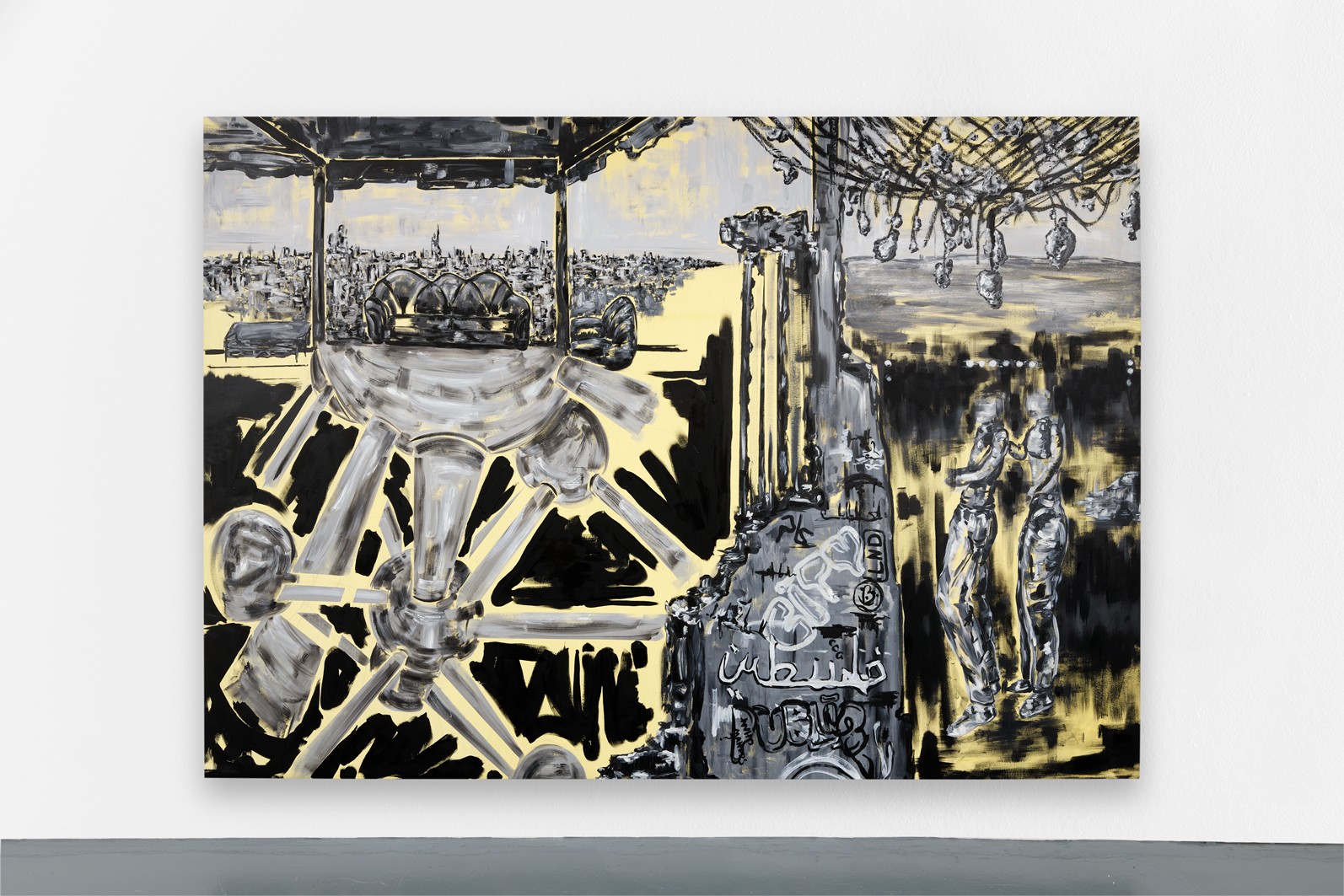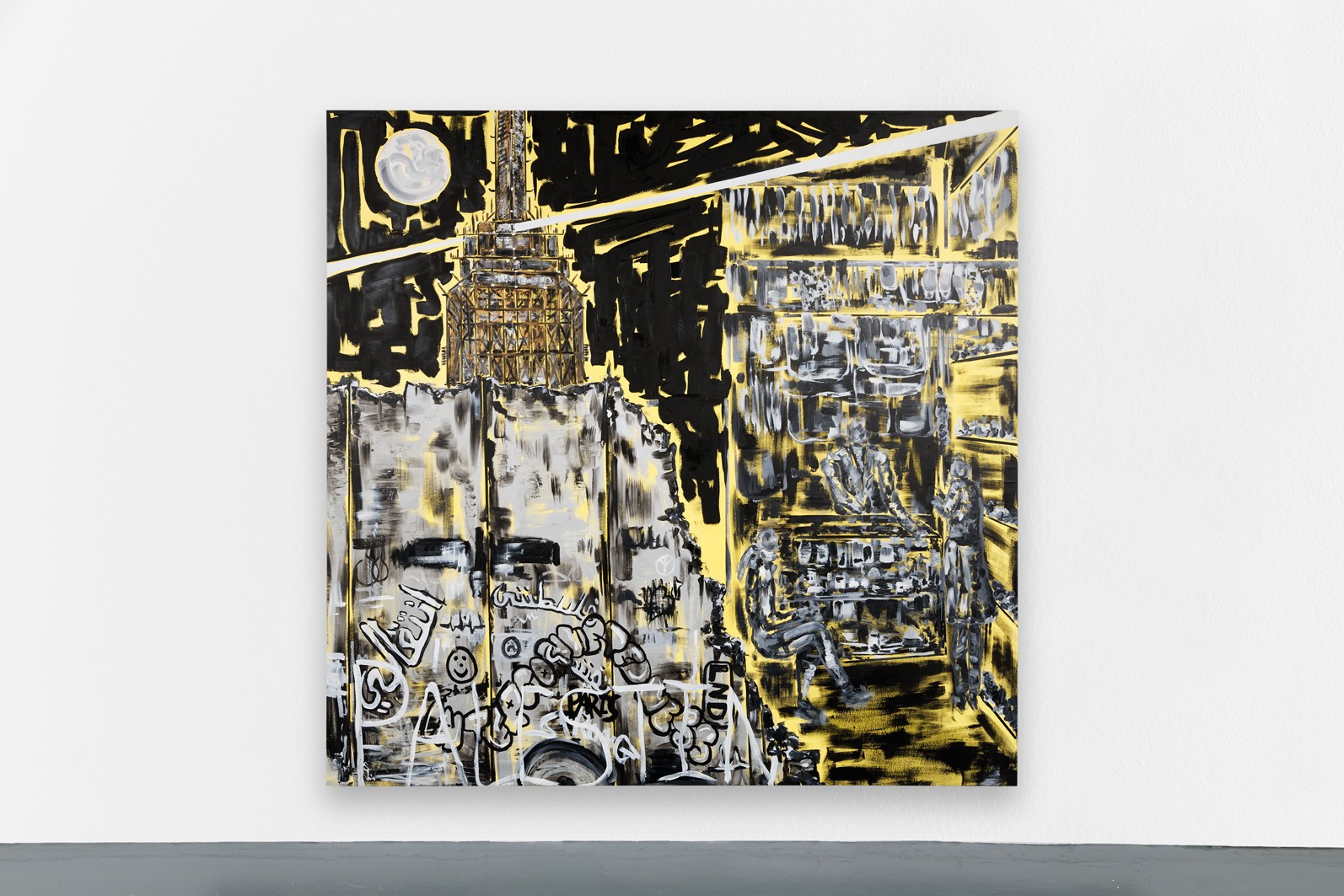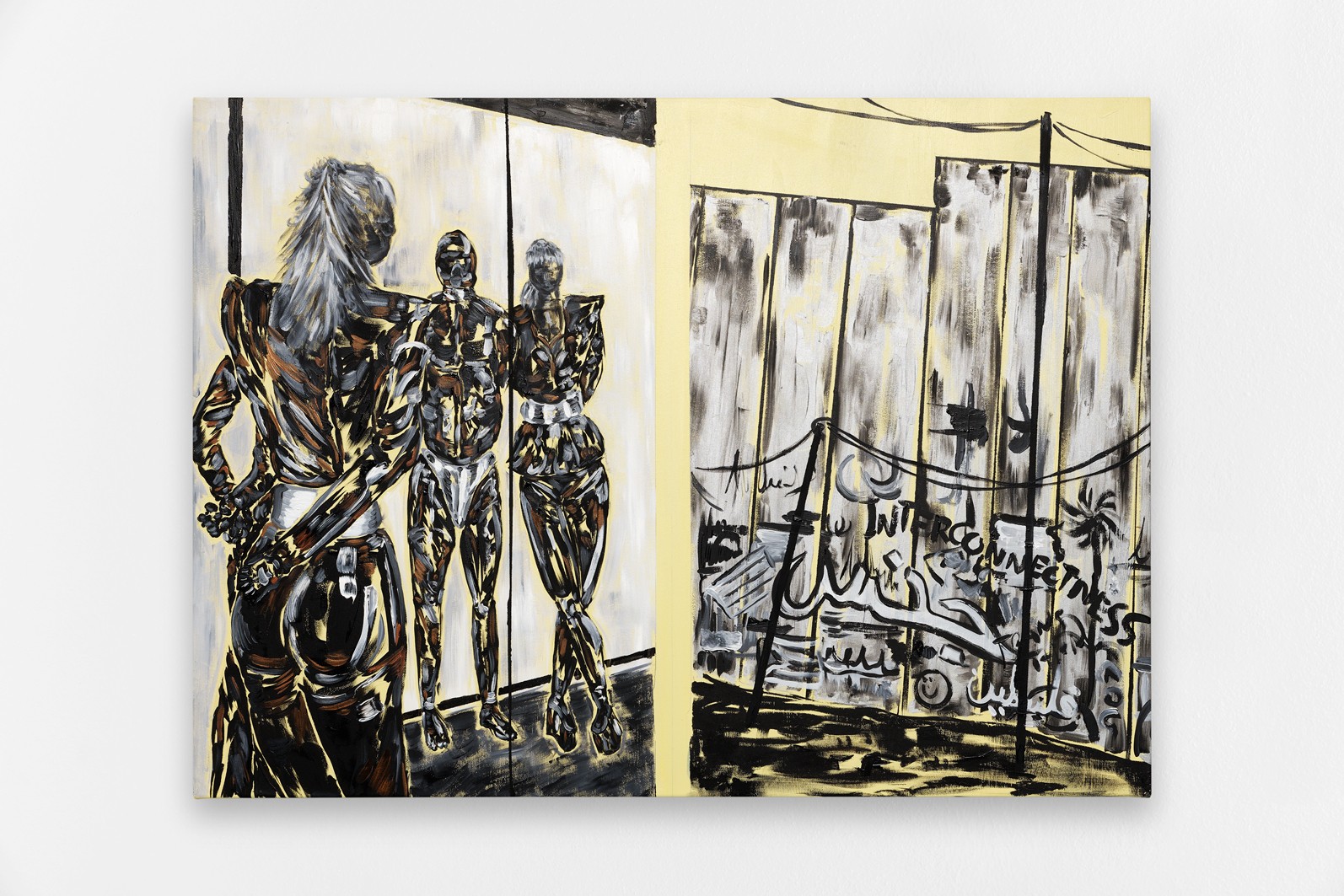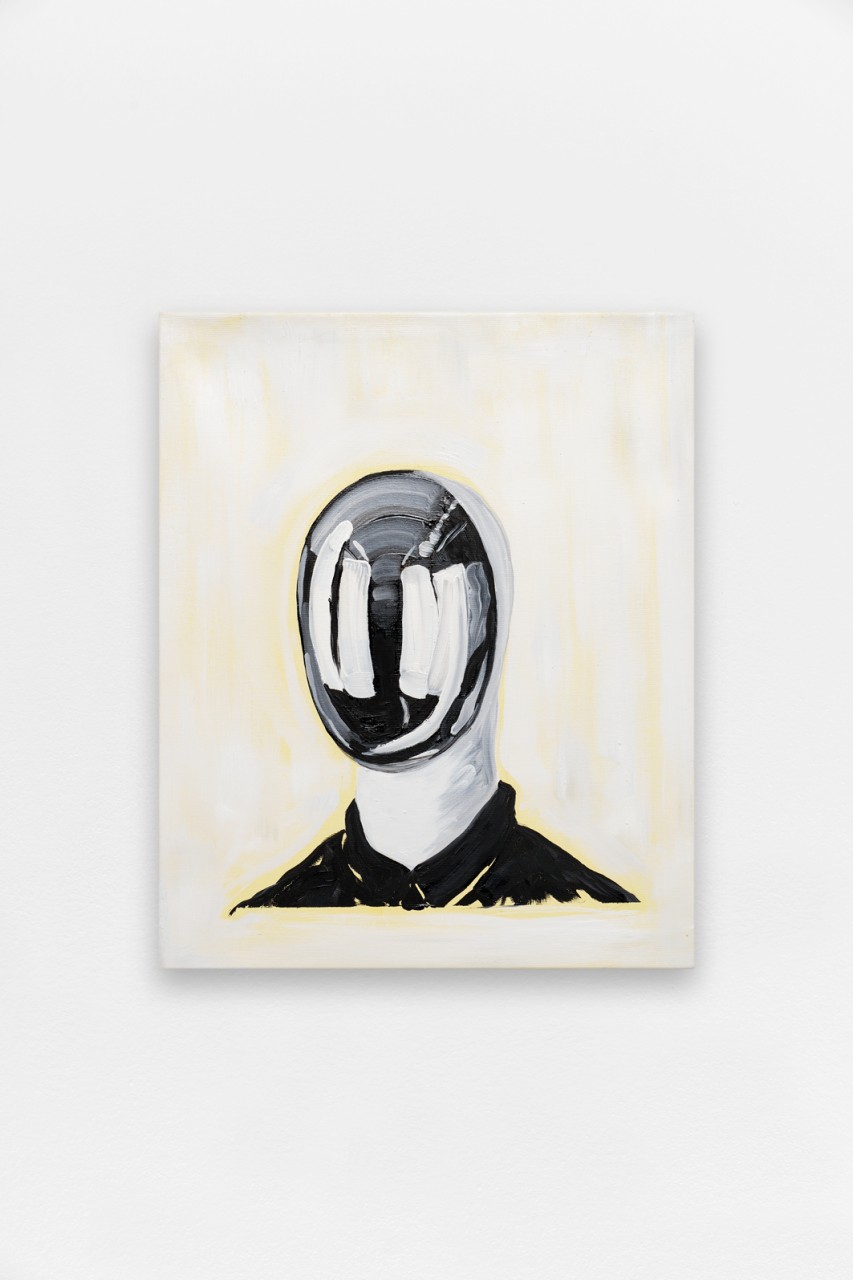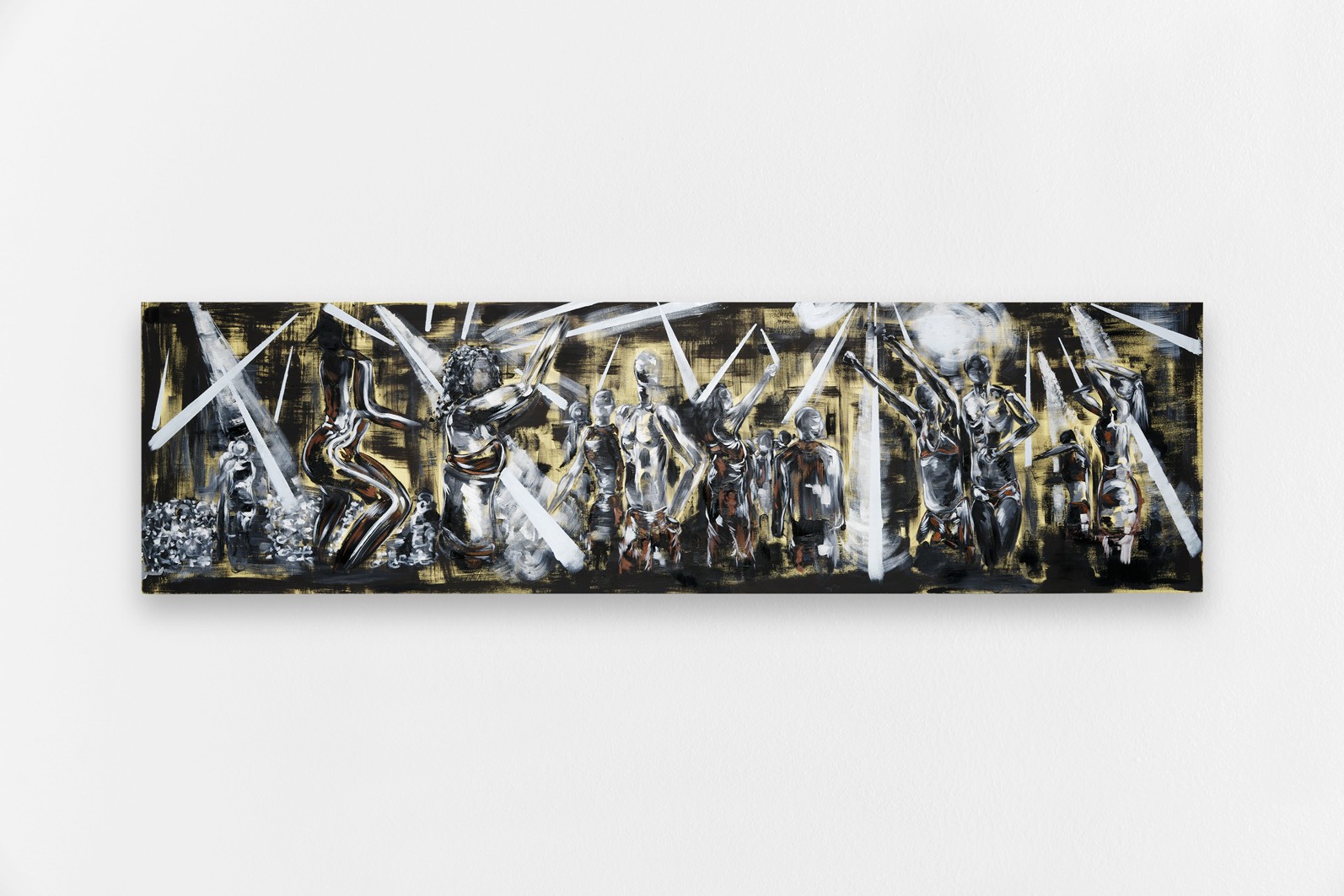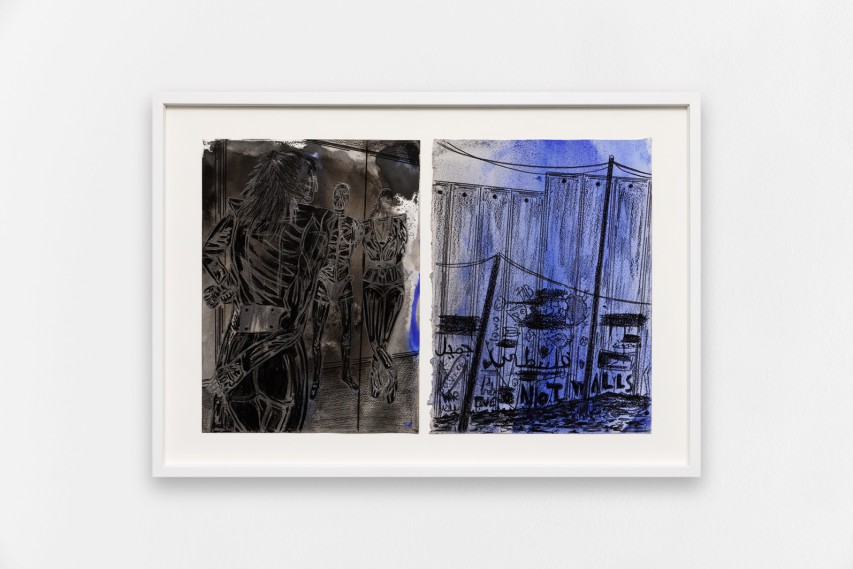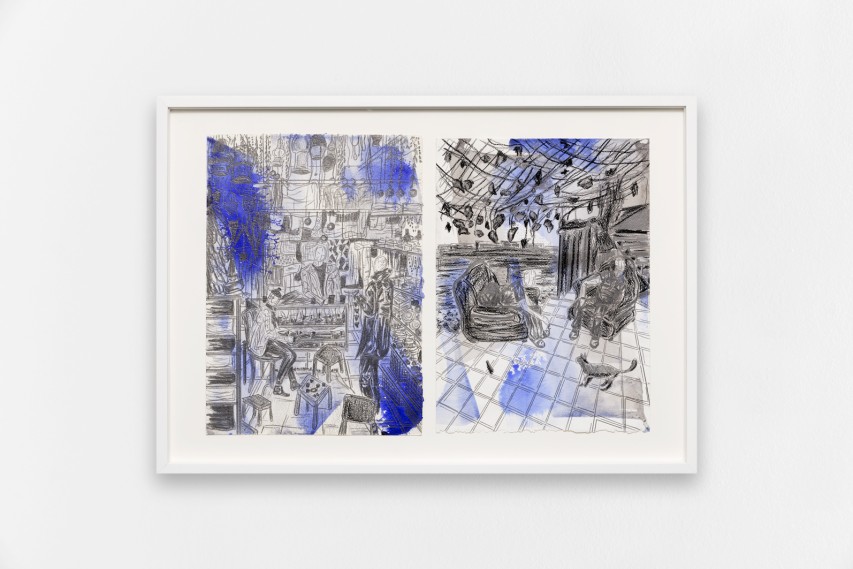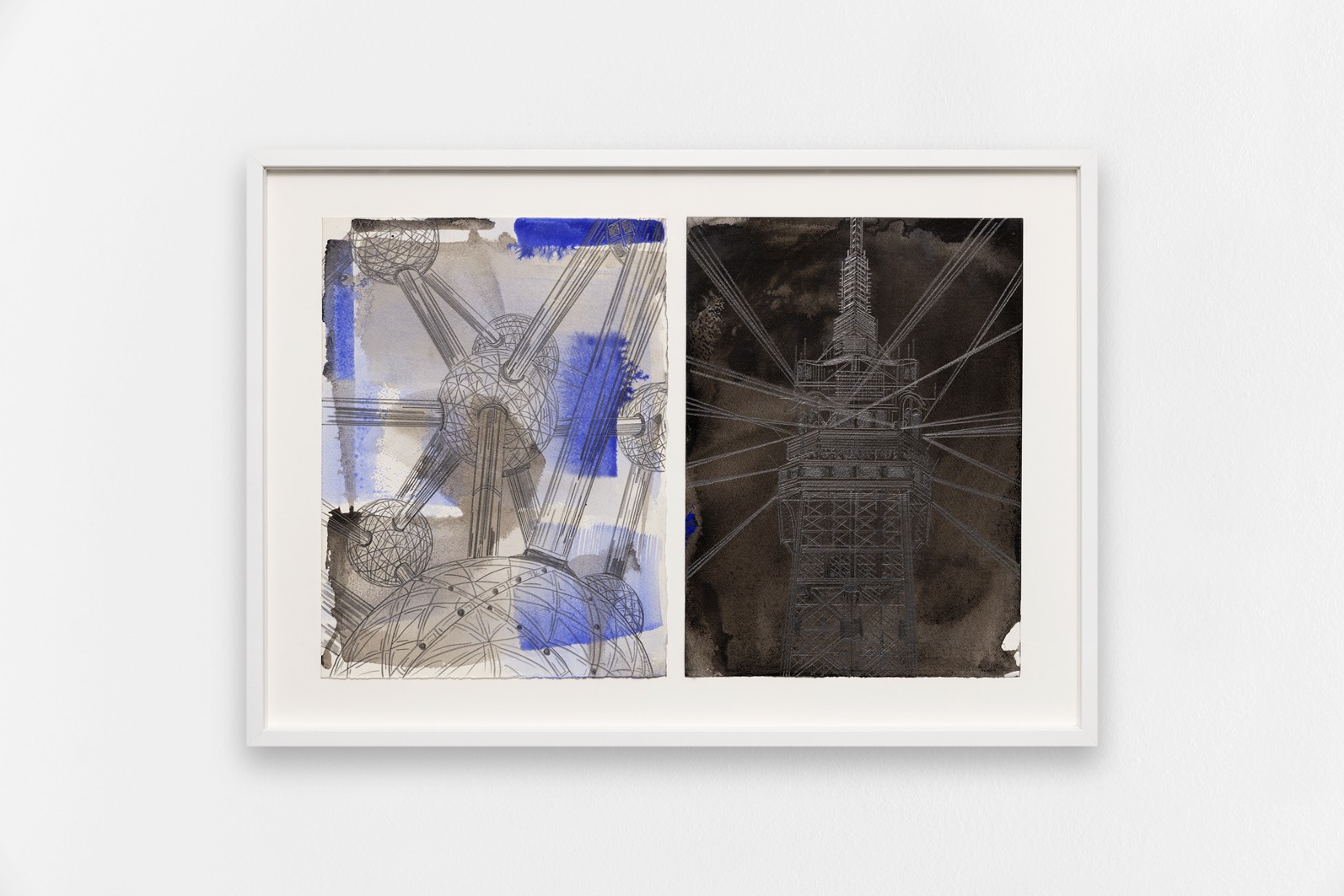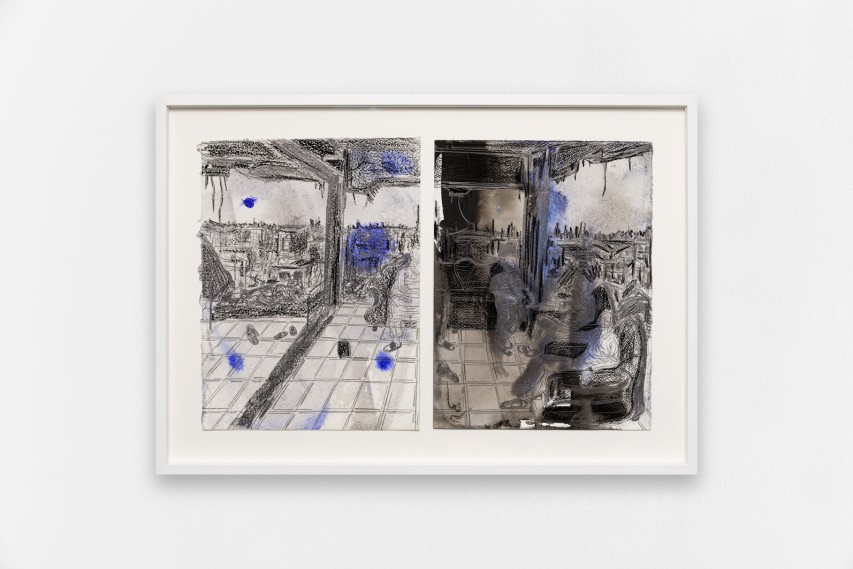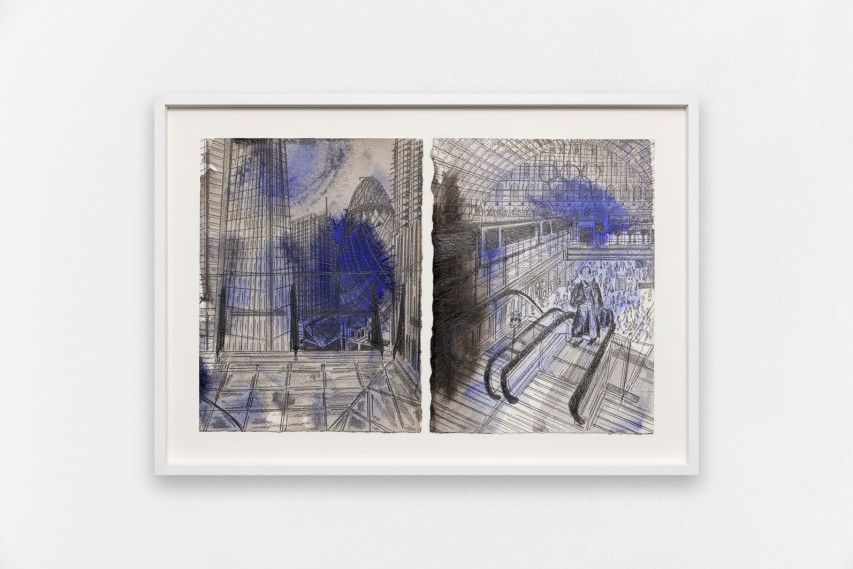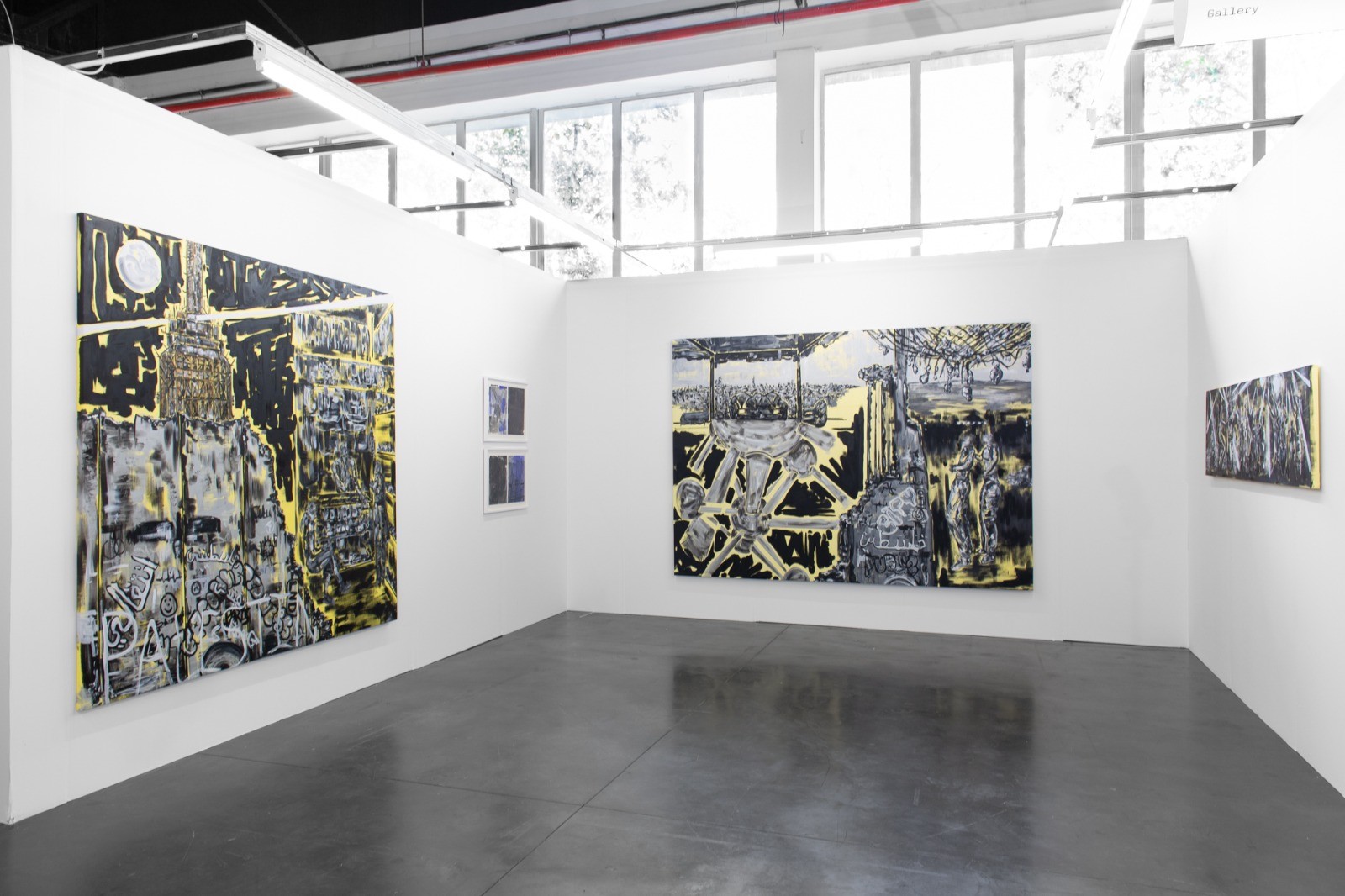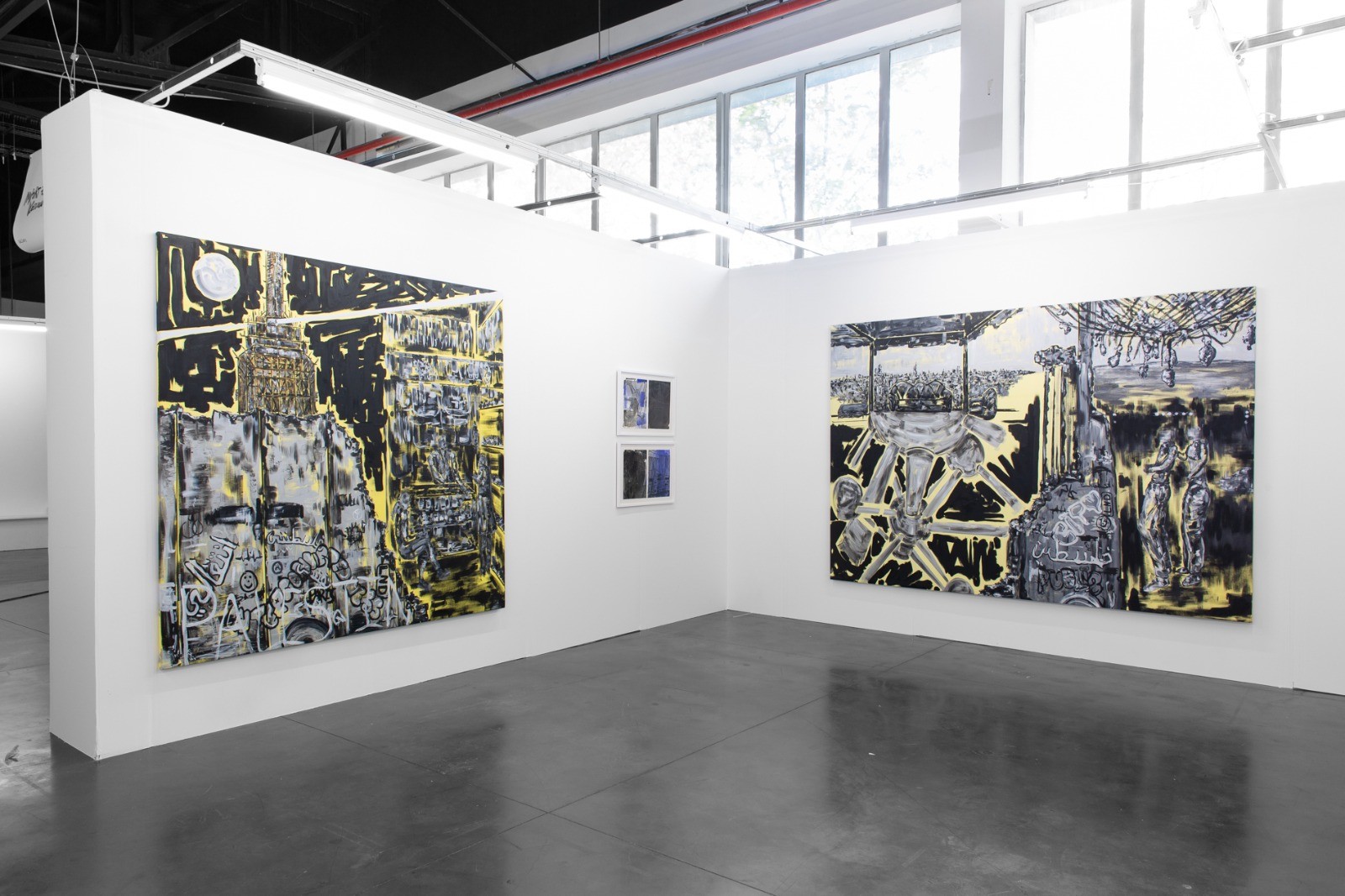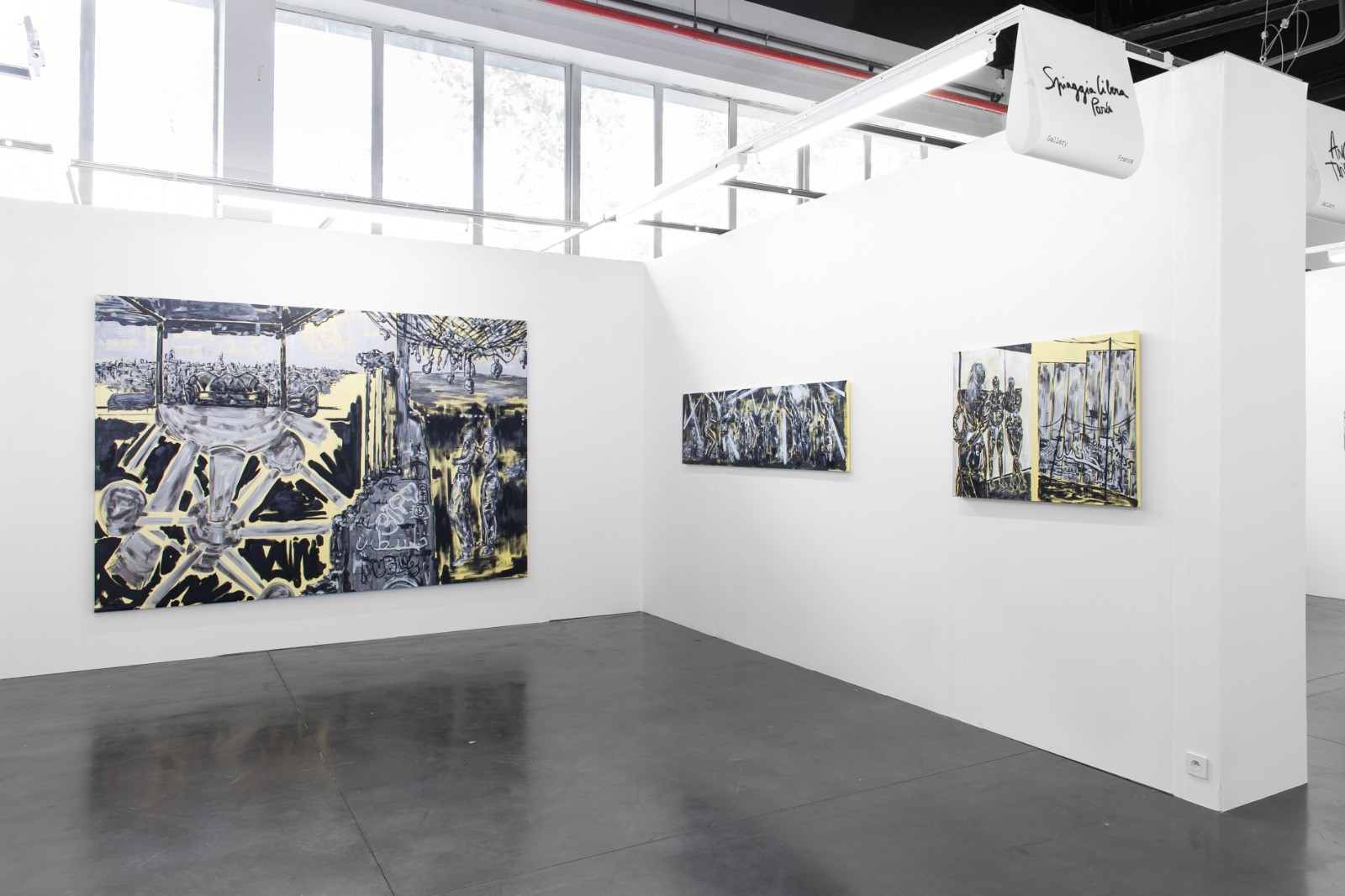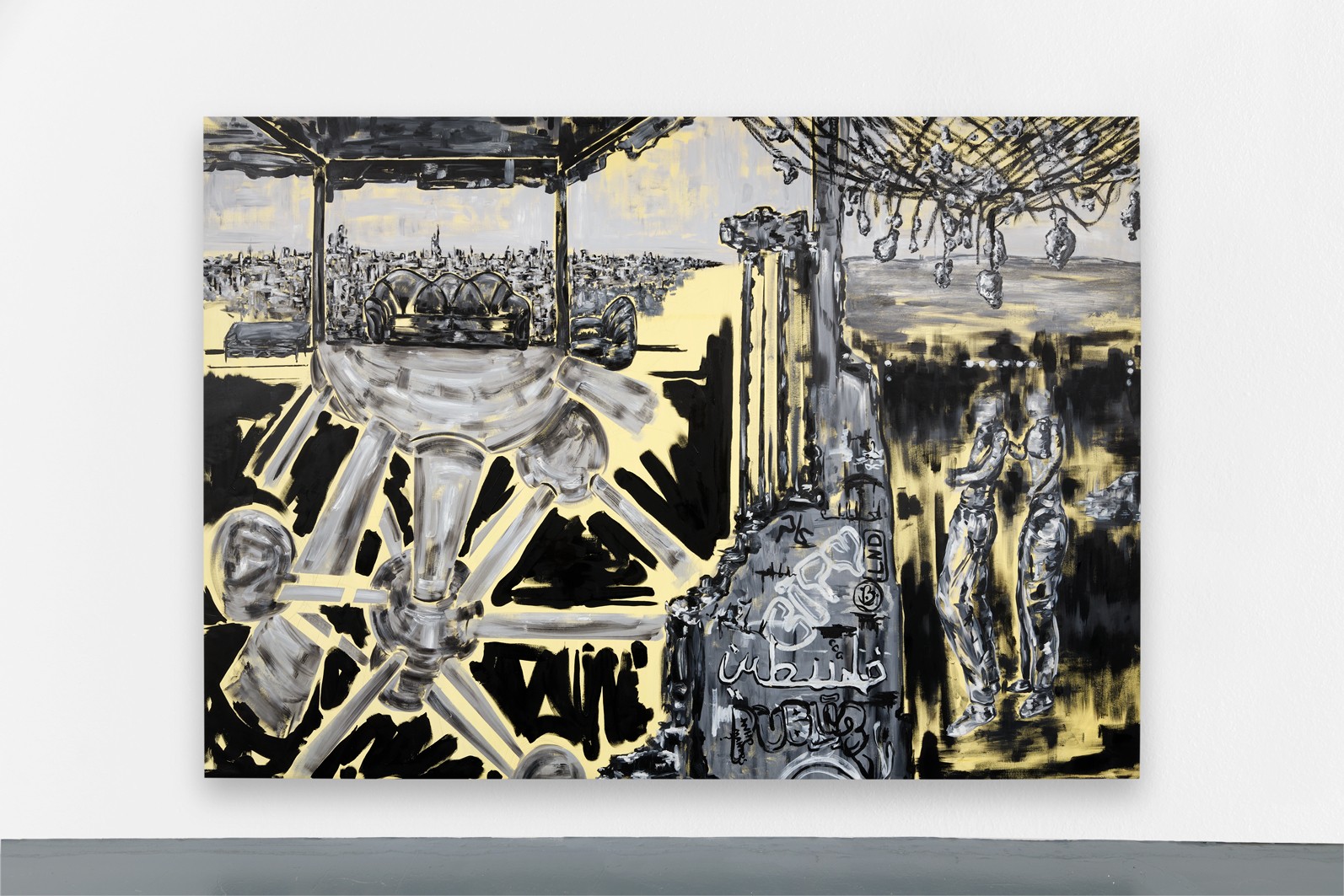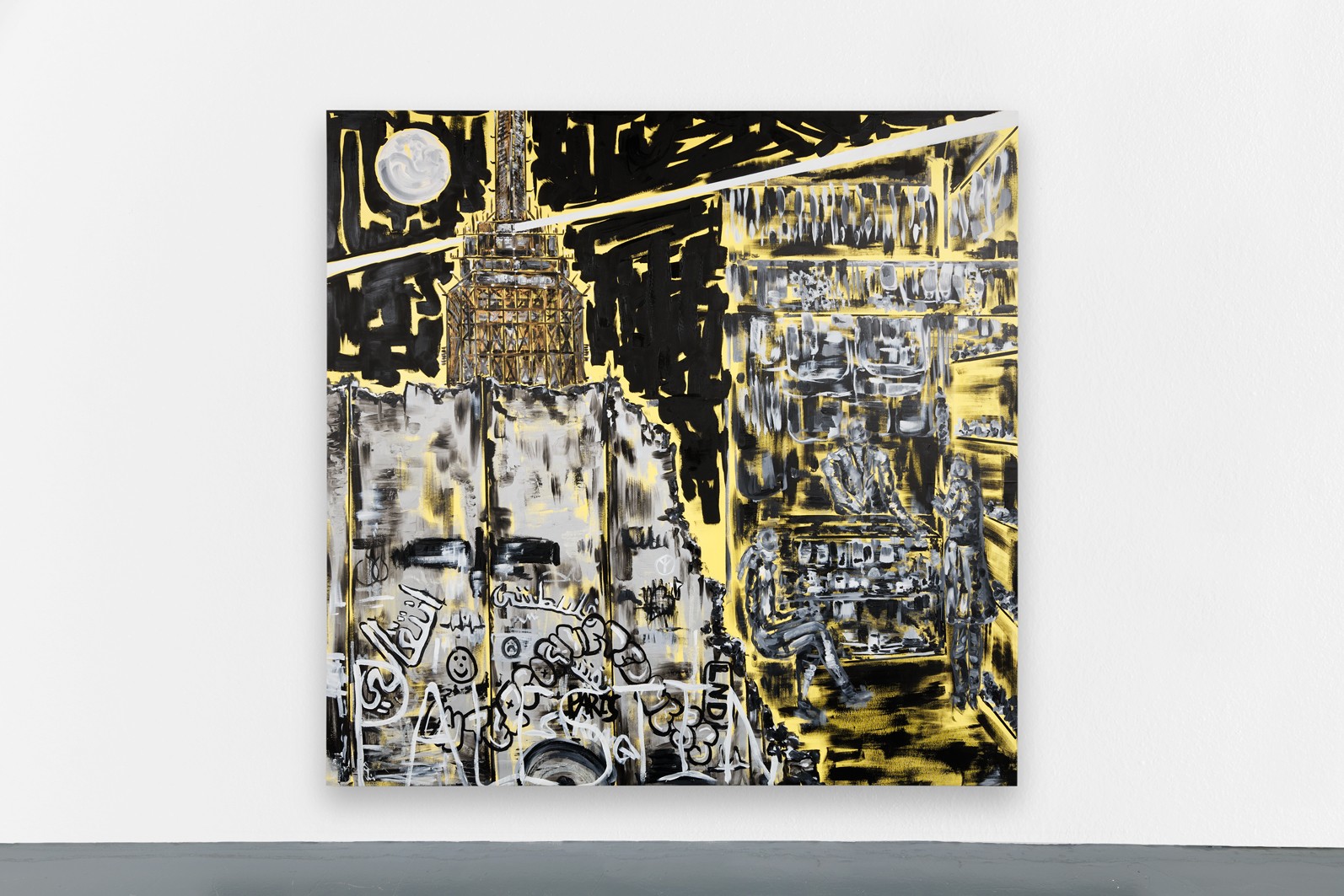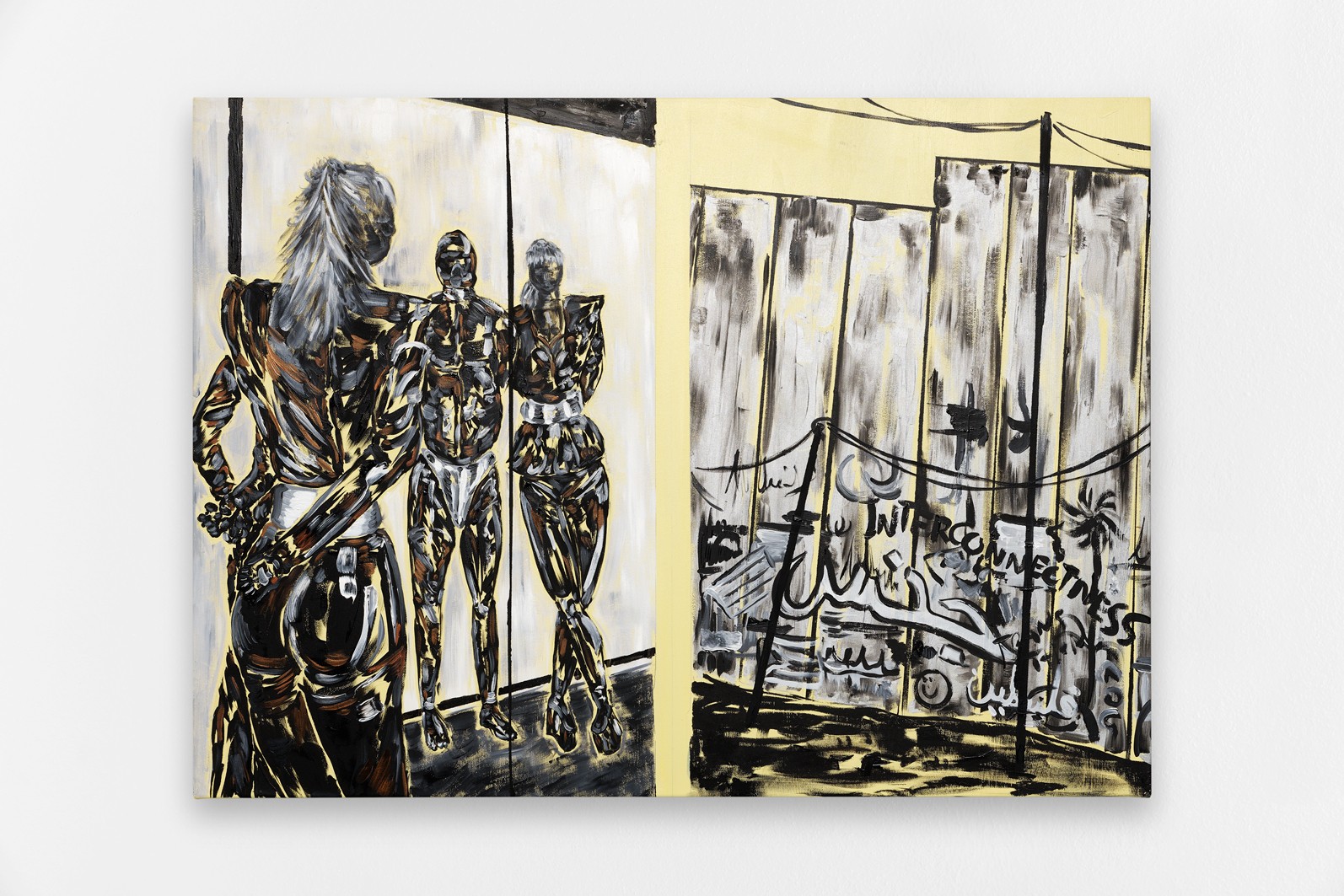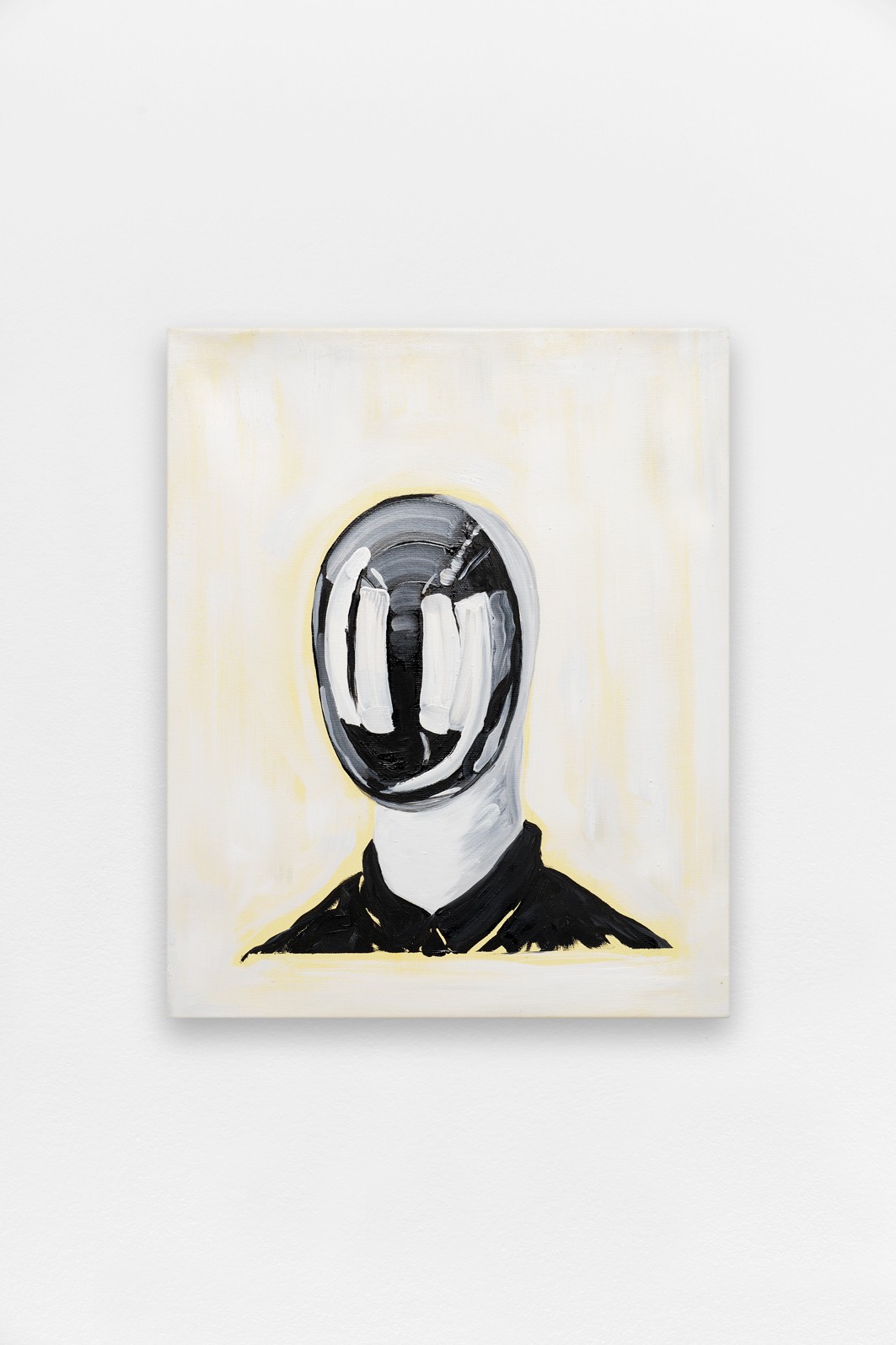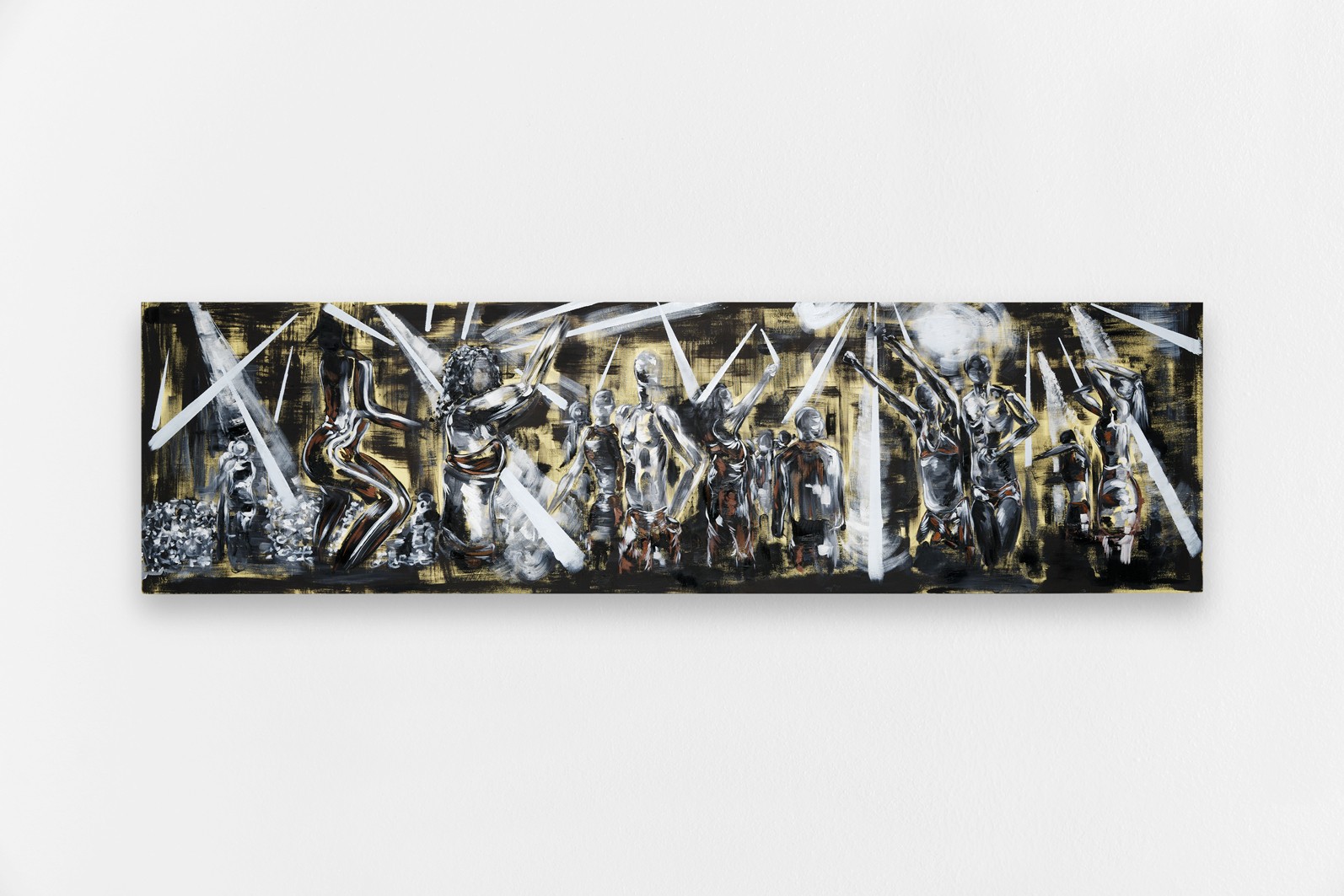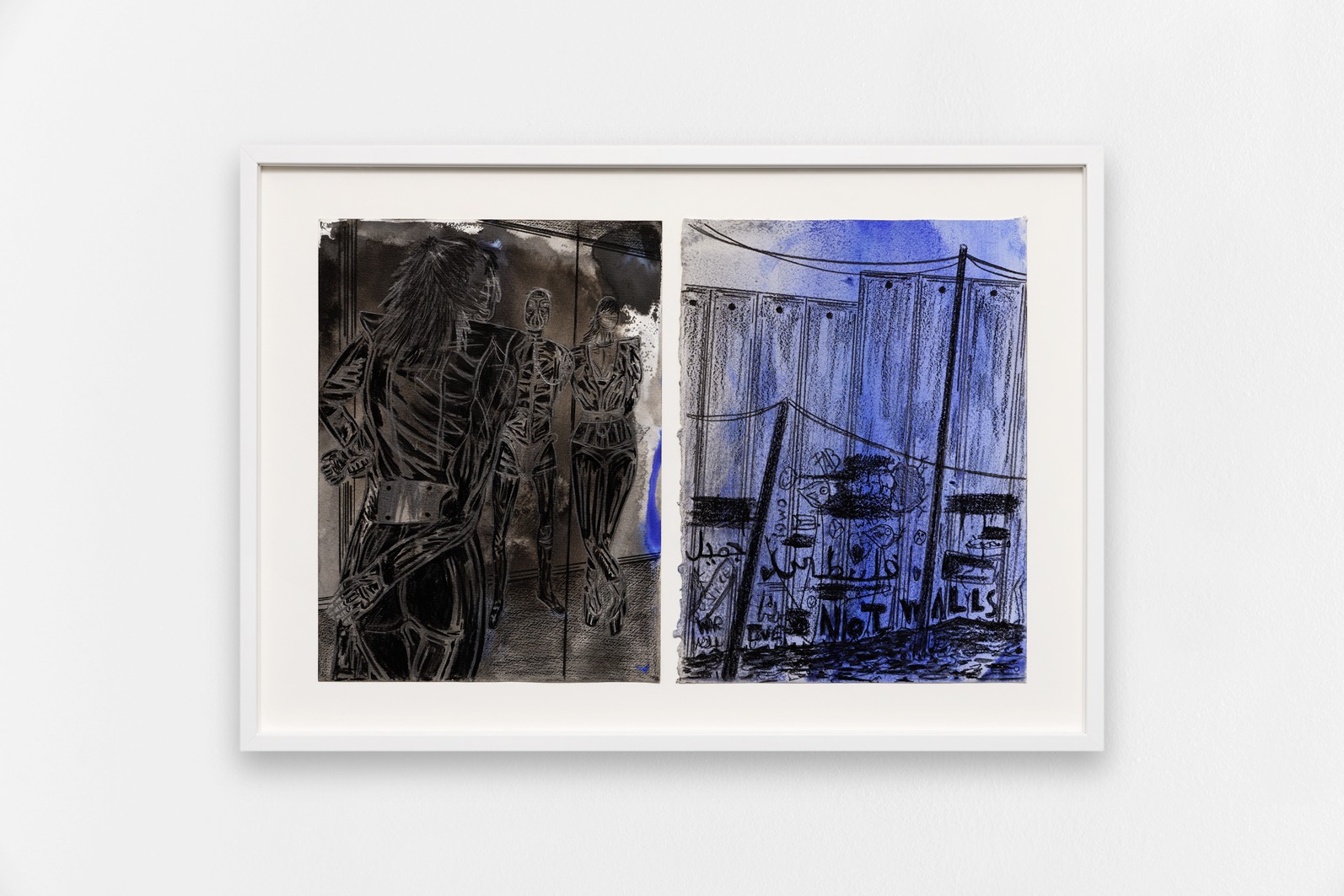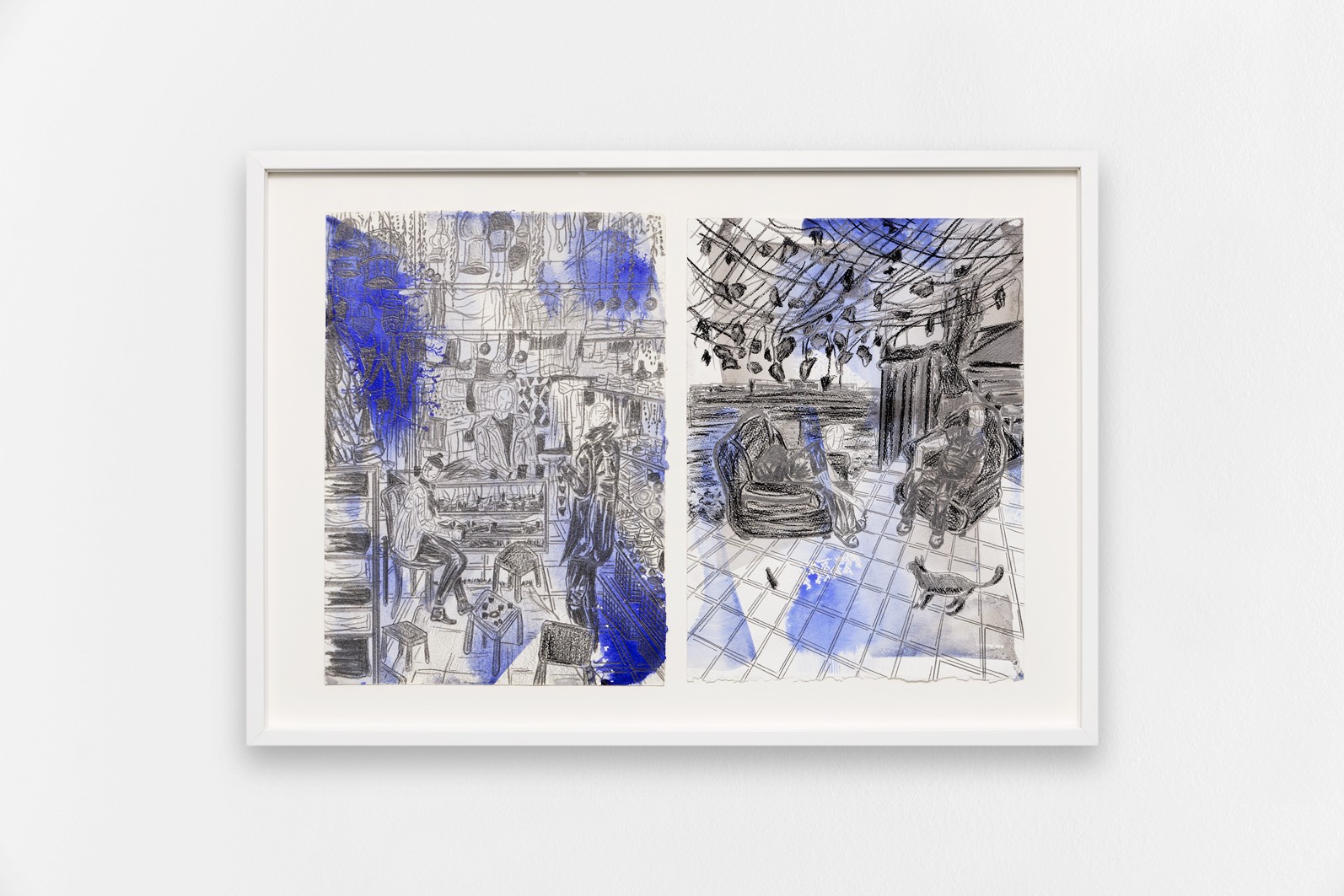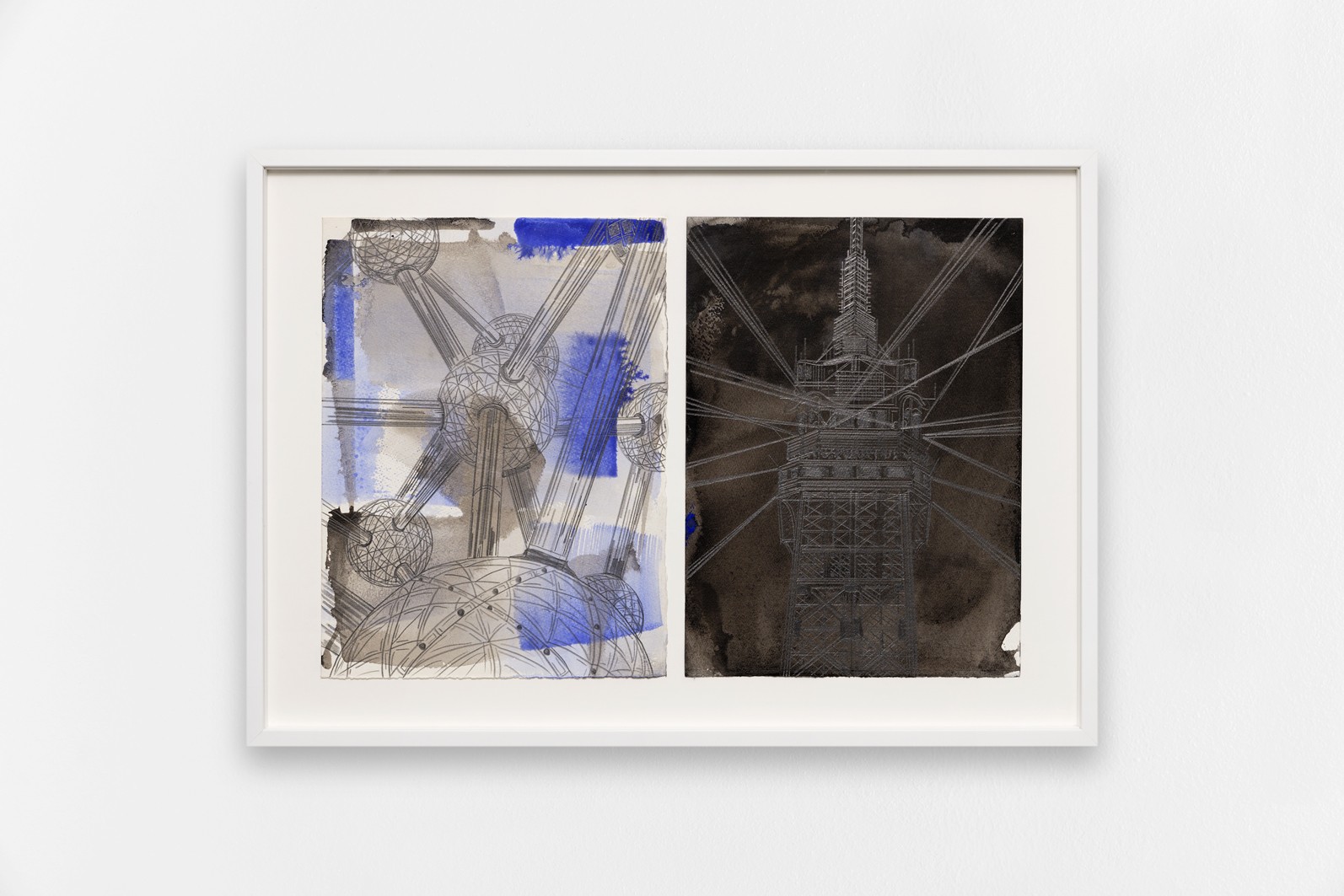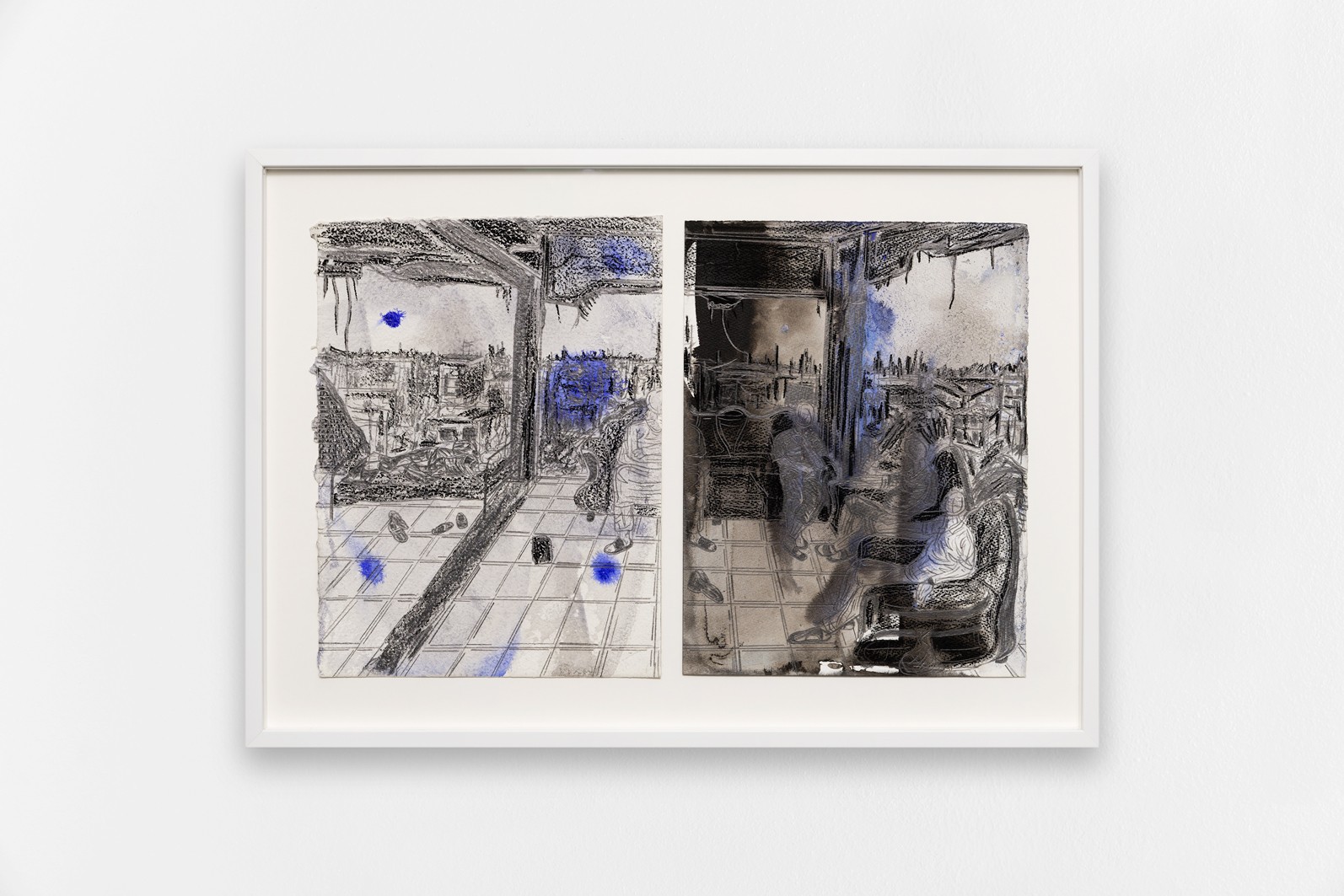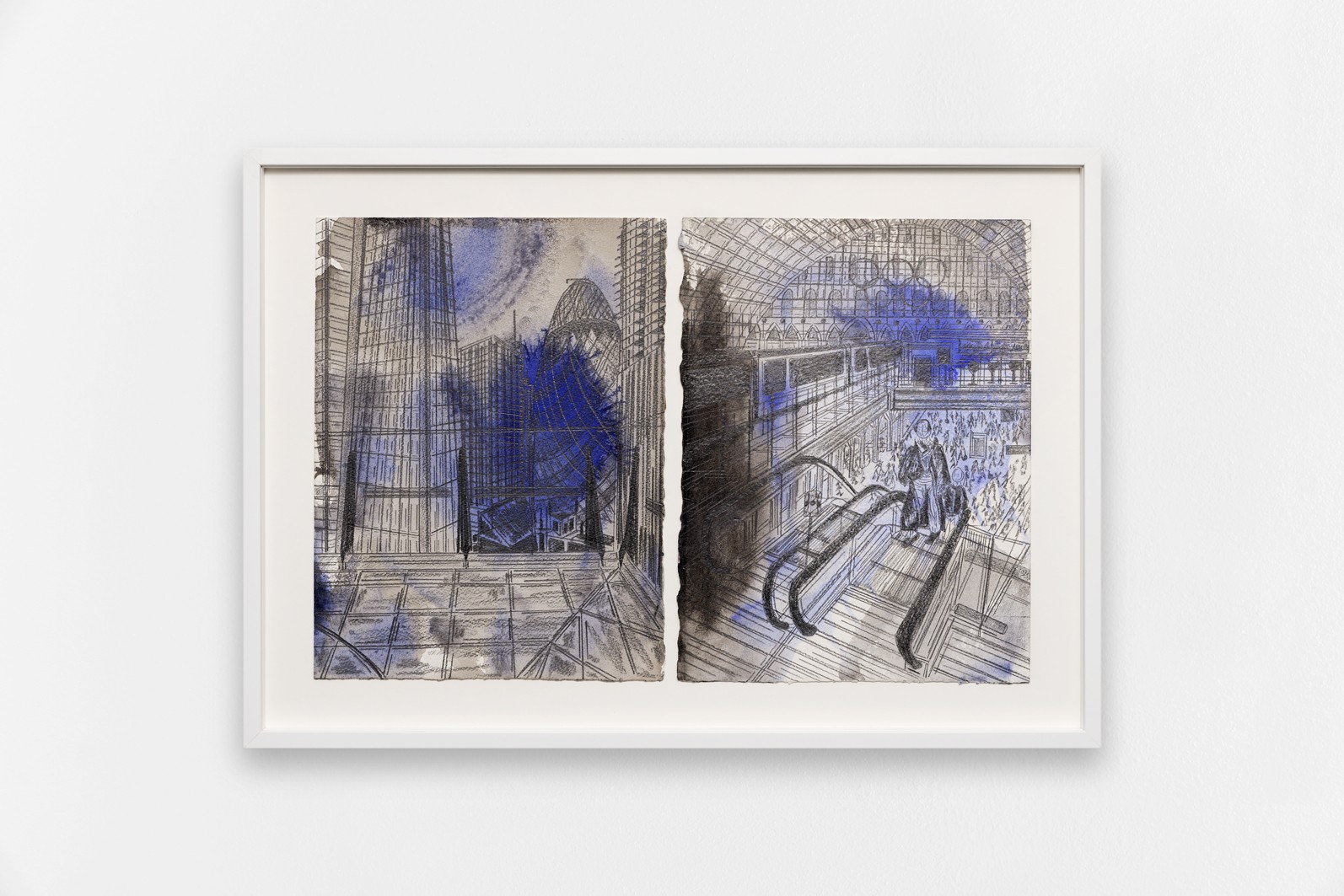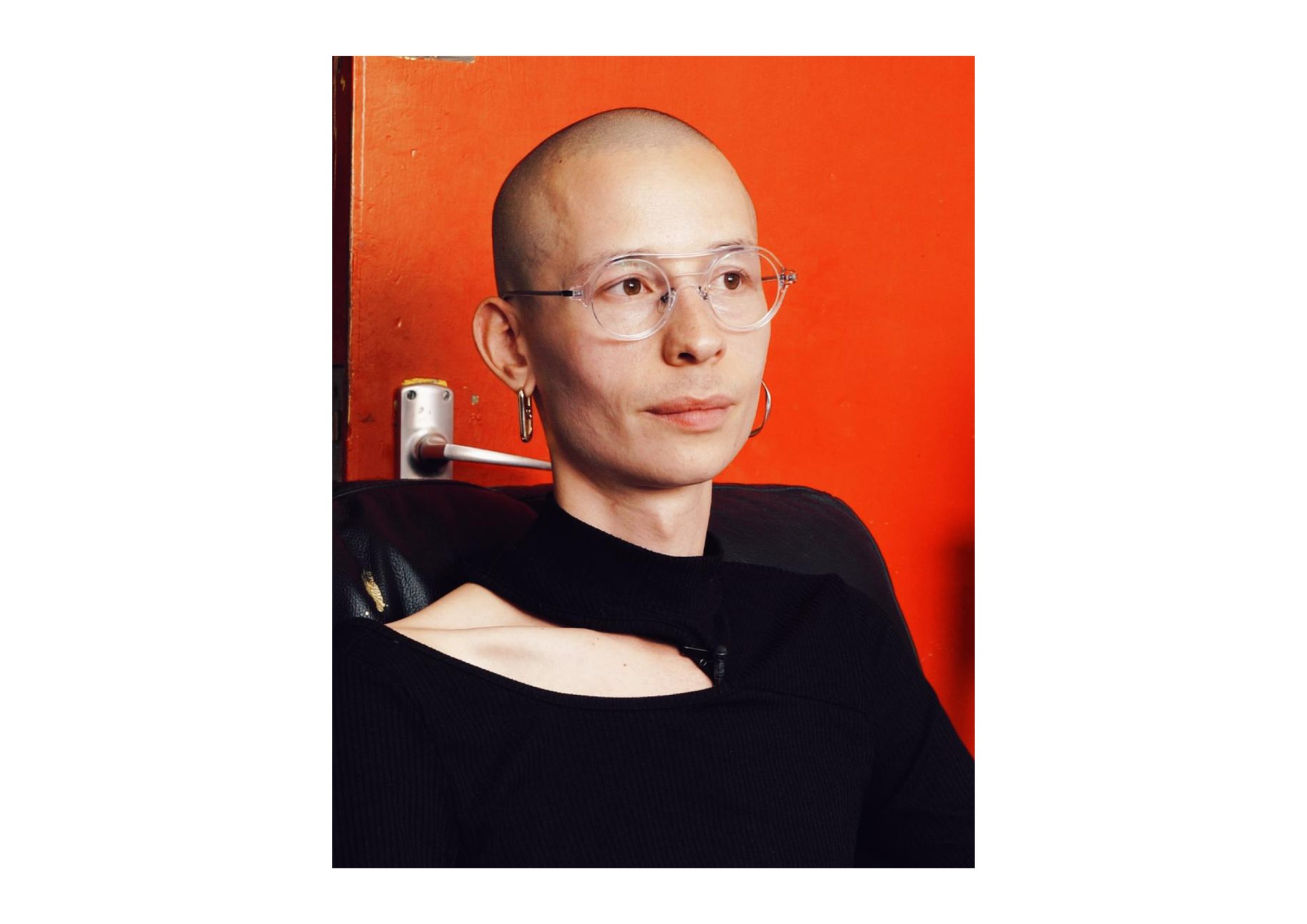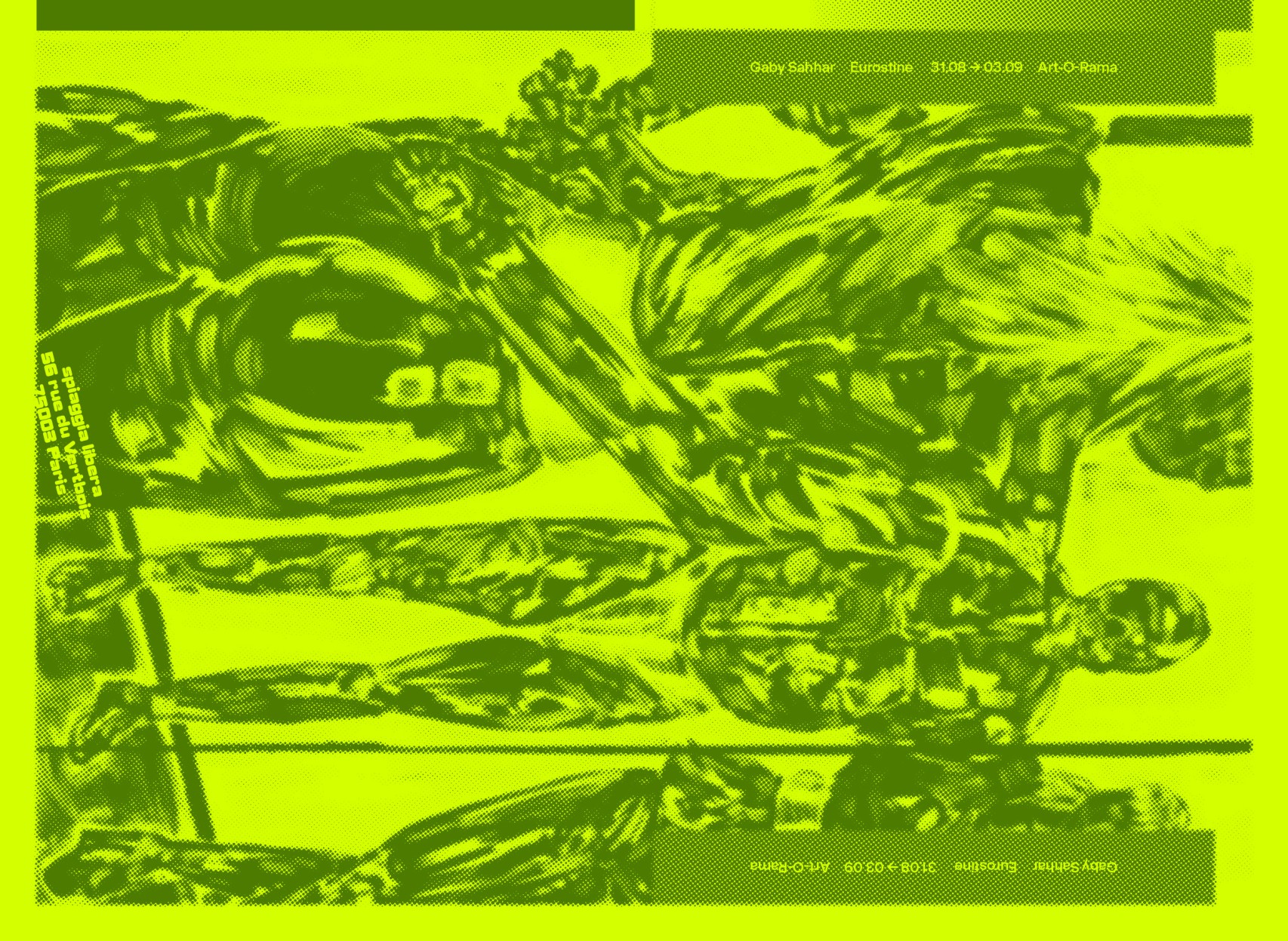
- Gaby Sahhar
Art-o-rama 2023
Gaby Sahhar composes semi-fictional landscapes in which what we guess to be hybrid versions of European monuments stand alongside what remains of ruined buildings, still inhabited by indistinct silhouettes.
On the horizon, behind the framework and remaining debris, we see the outlines of a nondescript Western city.
Although no border seems to mark the separation of seemingly opposing environments, there is always a wall in the foreground, the one that has annexed and enclosed the Palestinian territories since 2002.
Drawing on personal and family memories, archived documents, emotions, and their own subconscious, Sahhar develops imagery that questions projections and ways of perceiving a place, as much as the place from which it is viewed.
Eurostine’s impossible architectures emerge like speculative worlds with the occasional dystopian outlines and blurred temporalities, where Europe and Palestine meet, two geographically distant zones that still come together in the artist’s multiple and complex identity.
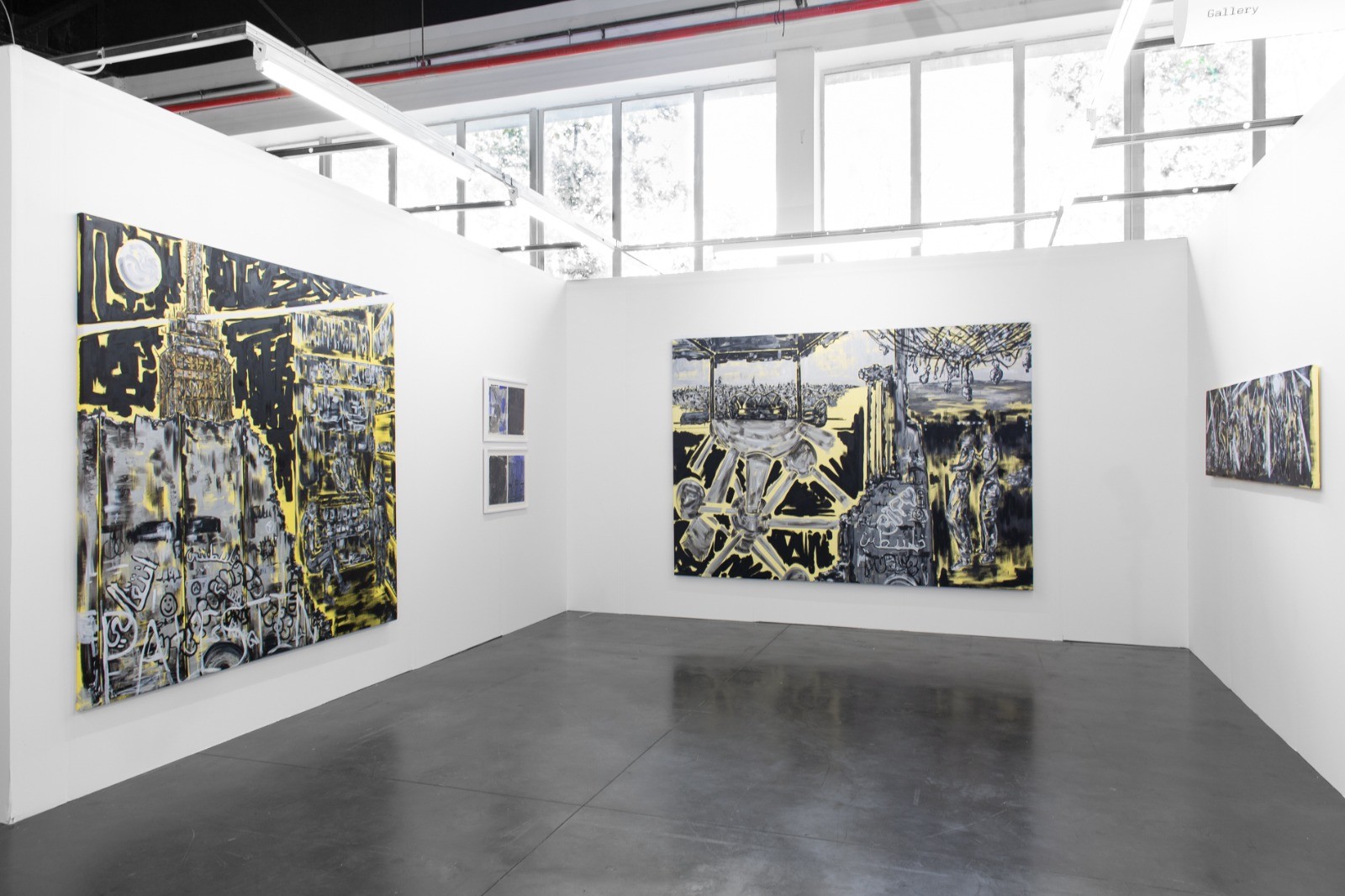
Exhibition view, “Eurostine”, Art-O-Rama, Marseille, France, 2023. Courtesy the artist & Spiaggia Libera, Paris. © Margot Montigny
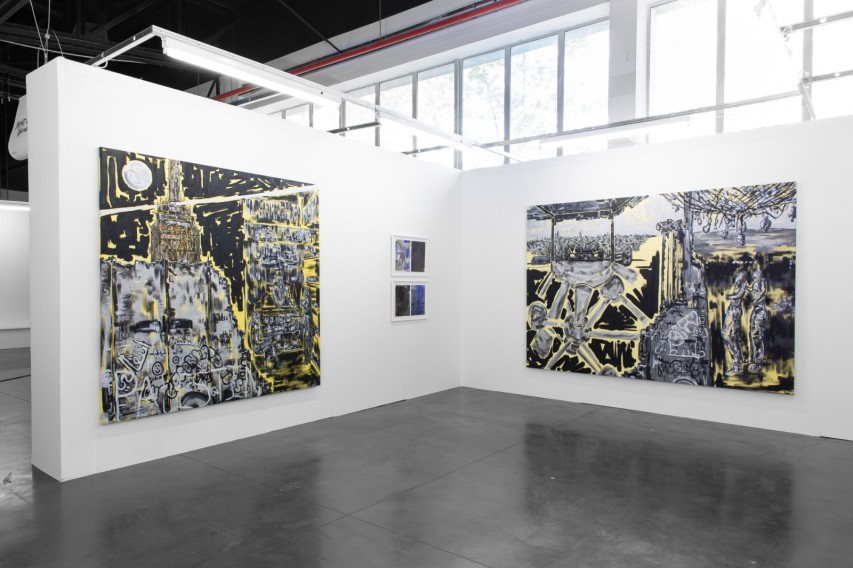
Exhibition view, “Eurostine”, Art-O-Rama, Marseille, France, 2023. Courtesy the artist & Spiaggia Libera, Paris. © Margot Montigny
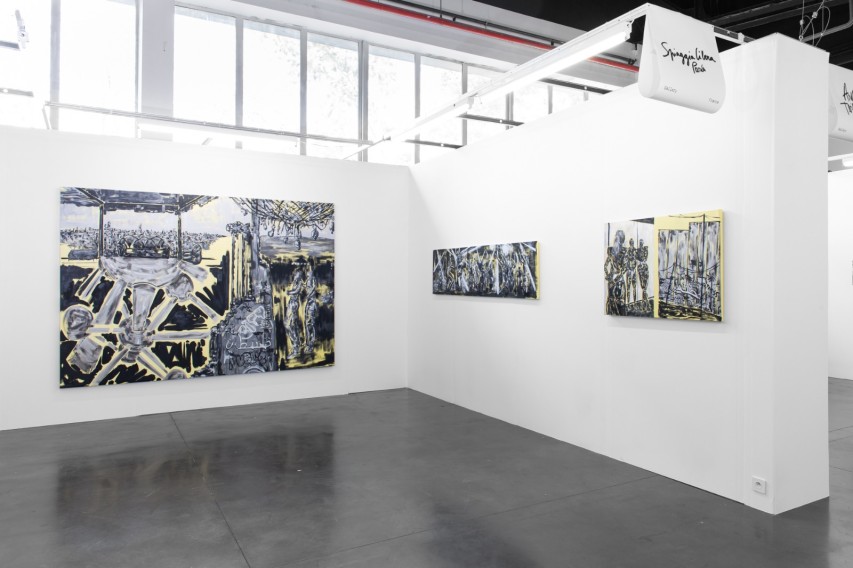
Exhibition view, “Eurostine”, Art-O-Rama, Marseille, France, 2023. Courtesy the artist & Spiaggia Libera, Paris. © Margot Montigny
While imagination is usually a means of escape from reality, here, the neologism of the series’ title appears to be a means of overcoming its limitations, creating a reality that is both alternative and critical of the narratives and images that condition it.
In their urban constructions, Sahhar creates a visual language that extends their reflections on the processes of identification, disidentification and assimilationism that surround gender identity, to Palestinian identity, both of which are fragmented and interdependent, sharing positions of marginality that are admittedly different but also and above all possessing a capacity for struggle and resilience in the face of systems of oppression.
The three anonymous figures dressed in fetish outfits in The Mirrored Room, whose undefined roles could be of either submission or domination, also suggest the question of power in relationships.
Expansion, 2023, oil paint, oil stick, graphite on canvas, 205 x 290 cm. Courtesy the artist & Spiaggia Libera, Paris. © Aurélien Mole.
Pali, 2023, oil paint, oil stick, graphite on canvas, 205 x 210 cm. Courtesy the artist & Spiaggia Libera, Paris. © Aurélien Mole
Like all the other human figures in Eurostine, none of them have identifiable features, reflecting their own image back to each other, and the possible loss, endured or consented to, of one identity for the benefit of another. The question is not whether the artist or another person is hiding behind the indiscernible face of Transitional, but rather to probe the conditions of existence and the tipping point between its appearance and disappearance: generating itineraries and spaces on the margins, continuing to live beyond repression, confiscation, and negation by imagining new ways of being with ourselves, with others, and with the world.
Using multiple languages, Sahhar combines distant spaces crossed by the light of a sun under which still shine the bright lights of those who refuse to be invisible.
Camille Ramanana Rahary
Translated by Mathilde Mazau
The Mirrored Room, 2023, oil paint, oil stick, graphite on canvas, 75 x 103 cm. Courtesy the artist & Spiaggia Libera, Paris. © Aurélien Mole
Transitional, 2023, oil paint, oil stick, graphite on canvas, 45 x 55 cm. Courtesy the artist & Spiaggia Libera, Paris. © Aurélien Mole
Making my body go, It feels so good, 2023, oil paint, oil stick, graphite on canvas, 200 x 55 cm. Courtesy the artist & Spiaggia Libera, Paris. © Aurélien Mole
Eurostine 5, 2023, indian ink, graphite and charcoal on cold pressed cotton paper, 49.5 x 70 cm. Courtesy the artist & Spiaggia Libera, Paris. © Aurélien Mole
Eurostine 1, 2023, indian ink, graphite and charcoal on cold pressed cotton paper, 49.5 x 70 cm. Courtesy the artist & Spiaggia Libera, Paris. © Aurélien Mole
Eurostine 4, 2023, indian ink, graphite and charcoal on cold pressed cotton paper, 49.5 x 70 cm. Courtesy the artist & Spiaggia Libera, Paris. © Aurélien Mole
Eurostine 2, 2023, indian ink, graphite and charcoal on cold pressed cotton paper, 49.5 x 70 cm. Courtesy the artist & Spiaggia Libera, Paris. © Aurélie Mole
Eurostine 3, 2023, indian ink, graphite and charcoal on cold pressed cotton paper, 49.5 x 70 cm. Courtesy the artist & Spiaggia Libera, Paris. © Aurélien Mole
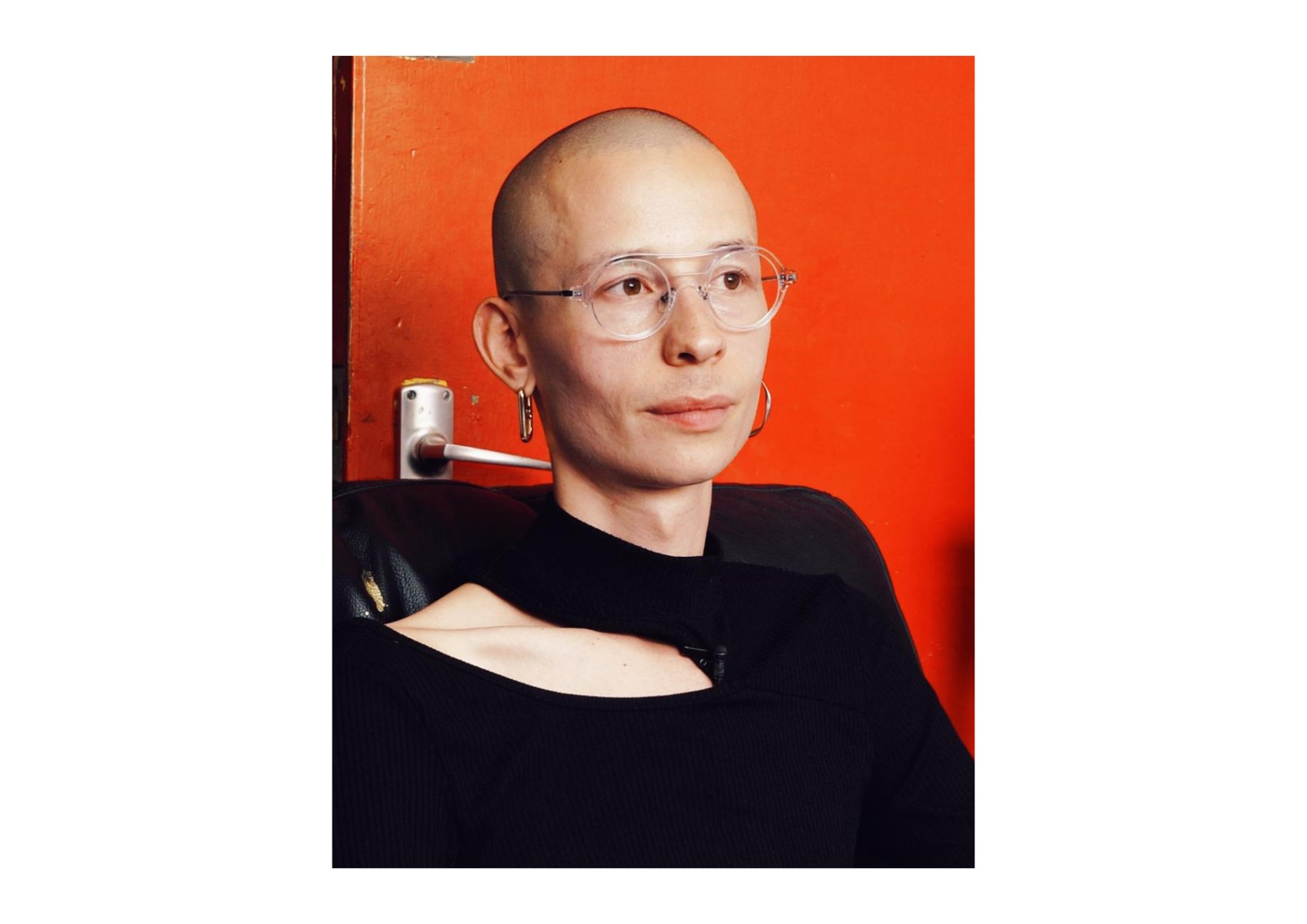
Gaby Sahhar, French-Palestinian, works between London and Paris.
Sahhar works across painting, installation and film. Their work aims to deconstruct the representation of gender within public spheres to understand its wider implications on queer consciousness and communities. Drawing on language and vulnerability as tools, their work aims to generate conversations around affordability, residence and interconnectedness within city cultures. They employ speculative storytelling to outline the different ways psychological and physical framework fragment Palestinian identity.
Their work has been exhibited at; MAC VAL, Paris / The Kooples Art Prize (2023); PAGE (NYC), New York (2022); SPACE Artist Award (2022) and group exhibitions include Fragment Gallery, New York (2022); Sadie Coles HQ, London (2022), Whitechapel Gallery (2022) South London Gallery (2020).
